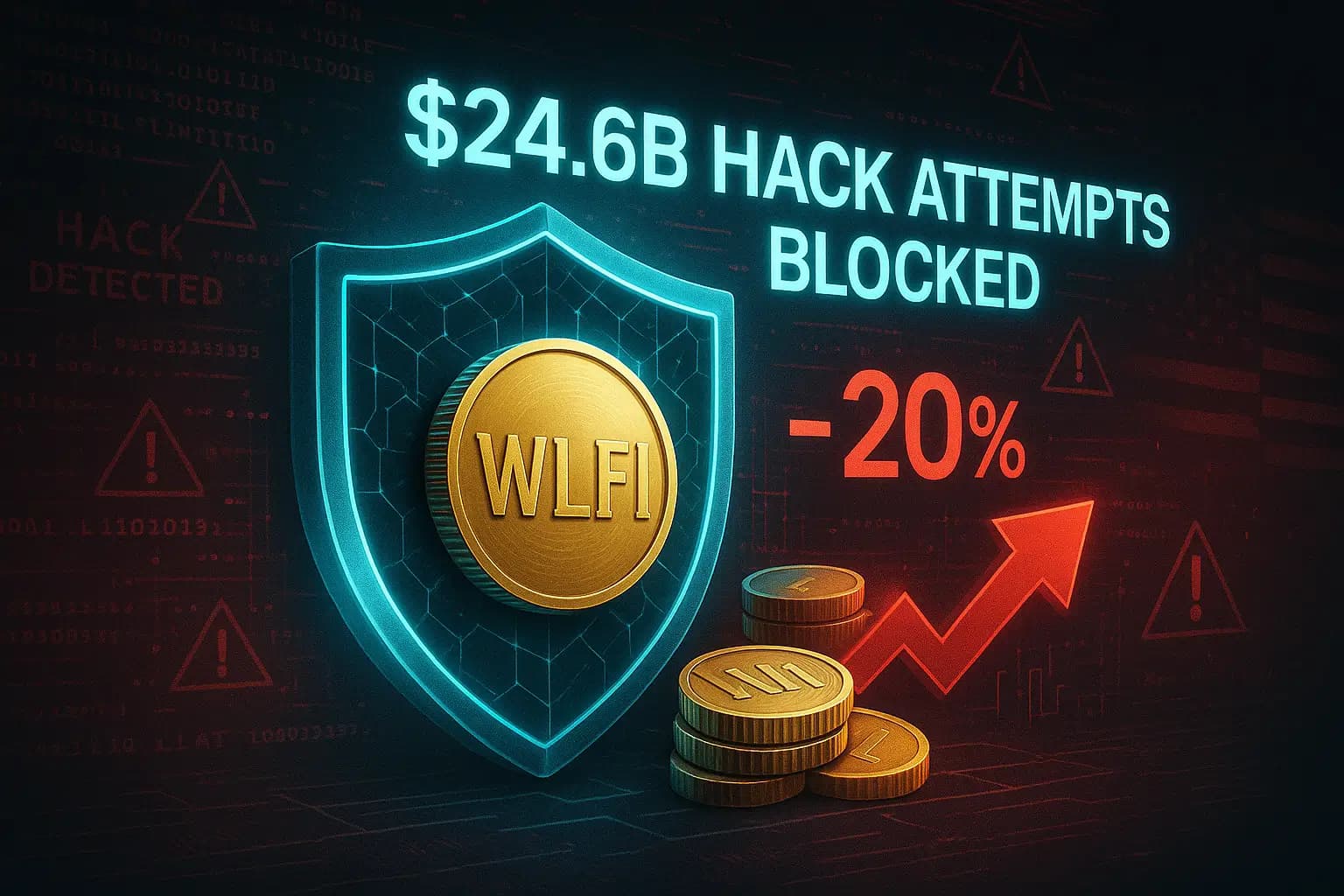The Polychain-backed Bitcoin-native stablecoin YU briefly plunged to about $0.20 after a ‘protocol attack’, before trading rebounded toward the dollar peg as the team disabled key functions and enlisted security partners.
Key Takeaways:
- YU saw a sharp decline, hitting a low near $0.2074 according to DEX data, a fall of roughly 80% from the expected $1 peg.
- The Yala team temporarily disabled Convert and Bridge functions and engaged security firms (including SlowMist) to investigate and mitigate the incident.
- Some users reported that YU could not be redeemed through official channels during the event, though the team insists all user assets remain safe.
Earlier today, September 14, on-chain market trackers and reports flagged Yala protocol that it experienced what it described as a targeted attack against its infrastructure. The stablecoin YU, designed to hold a one-to-one peg with the U.S. dollar, slipped dramatically in on-chain trading. DEX trackers recorded a low near $0.2074, wiping nearly 80% of its value before stabilizing. The sell-off quickly spread across multiple decentralized crypto exchanges, sparking panic among traders holding the token in their crypto wallets.
On their official X (formerly Twitter) account, the Yala team announced that it had temporarily disabled the protocol’s Convert and Bridge functions to contain the incident while engineers investigate. Yala also confirmed that it had engaged blockchain security firm SlowMist and other partners to help assess the incident, analyze attack vectors, and propose mitigation measures.
$30M in Potential Losses Under Review
SlowMist publicly acknowledged its involvement and confirmed that Yala had suffered an attack. Reports circulating among analysts suggest the losses could be as high as $30 million. Importantly, some users noted that they were unable to redeem YU for dollars during the depeg window, raising concerns about the protocol’s emergency controls. The team, however, issued a statement assuring that all user assets were safe and that fixes were being rolled out to strengthen system stability.
Blockchain analysts emphasized that low liquidity on certain pools amplified the damage. For example, a Uniswap pool for the YU/USDC pair reportedly contained just $1,450 in USDC liquidity, a fraction of what is normally expected for a stablecoin with institutional backing.
YU Price Rebounds But Confidence Shaken
At the time of writing (12:15PM UTC), DexScreener shows YU is trading at approximately $0.7869, showing a significant recovery in most of its lost ground but still short of its $1 peg.

Analysts Warn of Liquidity and Trust Risks
Industry observers have pointed out that the Yala case highlights the fragility of new DeFi projects, particularly when their smart contracts are not thoroughly battle-tested and liquidity support is thin. Stablecoins are considered a cornerstone of crypto investing strategies, but this event shows that a dollar peg is not guaranteed without robust security and sufficient liquidity buffers. Analysts warn that investor confidence could take time to rebuild even if the technical flaws are patched.
Outlook: Can YU Restore Its Dollar Peg?
The Yala stablecoin incident underscores how quickly confidence in even well-funded projects can evaporate during a security crisis. While the recovery above $0.90 is encouraging, questions about liquidity depth, attack vectors, and the integrity of redemption mechanisms remain unanswered. Until Yala and SlowMist release their findings and implement structural safeguards, traders and DeFi users may continue to treat YU as a high-risk asset. The market will closely watch whether the stablecoin can reestablish a consistent peg at $1 and regain trust as part of broader crypto investment strategies.
Summary
Yala’s Bitcoin-native stablecoin YU, backed by Polychain, crashed to about $0.20 after a protocol attack, with estimated losses of up to $30M. The team disabled its Convert and Bridge functions and engaged security firm SlowMist to investigate. While YU rebounded to around $0.79, confidence remains shaken. Analysts point to low liquidity pools and untested smart contracts as key factors that amplified the damage. The incident underscores the fragility of newer DeFi projects and raises questions about Yala’s ability to restore and maintain its $1 peg in the near term.

























